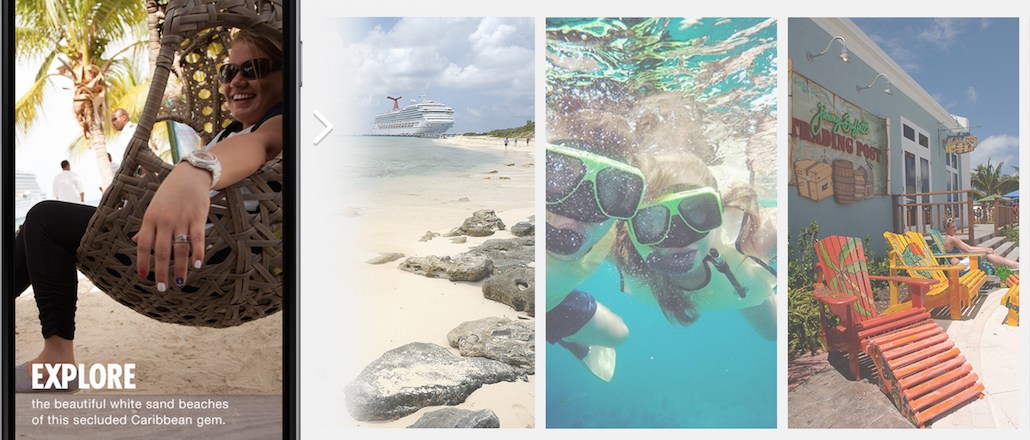Secure your place at the Digiday Publishing Summit in Vail, March 23-25
Facebook Canvas, a.k.a. Instant Articles for brands, officially launches

Facebook’s take on Instant Articles for advertisers is here.
The social network officially launched Canvas today, a full-screen, video mobile format that is intended to engage people more than a regular video ad. And, similar to Instant Articles, Canvas ads load 10 times faster than a standard mobile website.
Brands have been tinkering with Canvas ads on Facebook for the past few months, with Carnival Cruise Lines being one of the first. Carnival told Digiday that 50 percent of people who opened its Canvas ad watched the video to the end.
Gatorade, Michael Kors, Wendy’s and Target have also used Canvas. They and others have said that people actually engage with their ads, getting as much as 50 percent more clicks than a regular ad.
Notably, Facebook is charging companies the same price as a regular News Feed ad.
The Canvas team did an amazing job making this happen. Here's what a Canvas Ad looks like pic.twitter.com/gZBmAKA3D2
— Ben Cunningham (@codeblue87) February 25, 2016
Facebook has been rapidly expanding mobile ads, which accounted for a staggering 80 percent of its $5.6 billion revenue in the last quarter. So, this new unit is good news for brands because people remember them and better news for Facebook because it keeps people using the social network.
More in Media

WTF is a creator capital market?
What is a creator capital market, what does it mean for creators looking to diversify revenue, and why is it so closely tied to crypto?

Media Briefing: Publishers explore selling AI visibility know-how to brands
Publishers are seeing an opportunity to sell their AI citation playbooks as a product to brand clients, to monetize their GEO insights.

Creators eye Snapchat as a reliable income alternative to TikTok and YouTube
Figuring out the Snapchat formula has been very lucrative for creators looking for more consistent revenue on a less-saturated platform.





